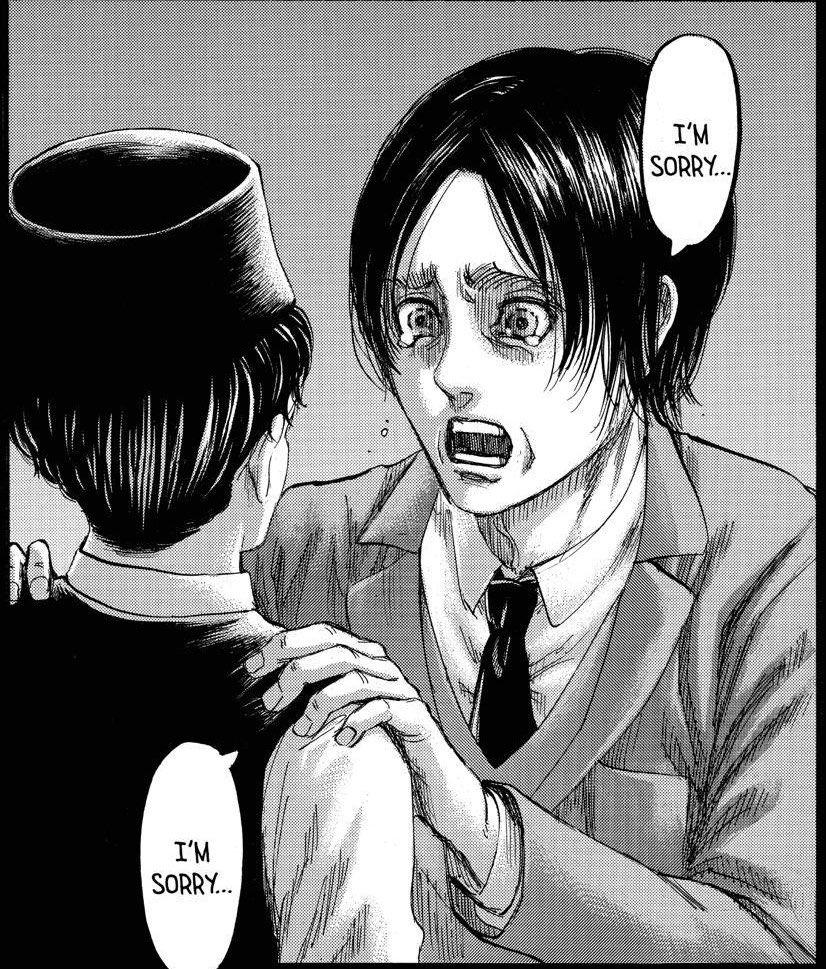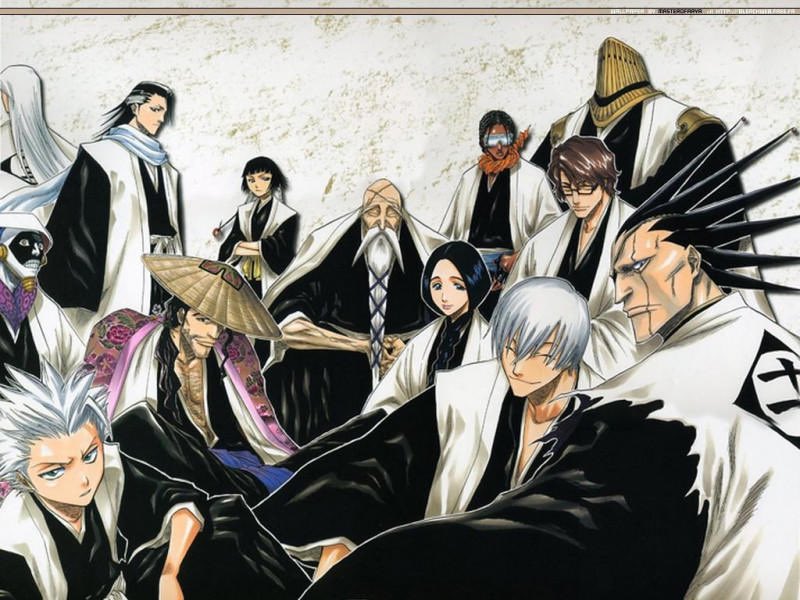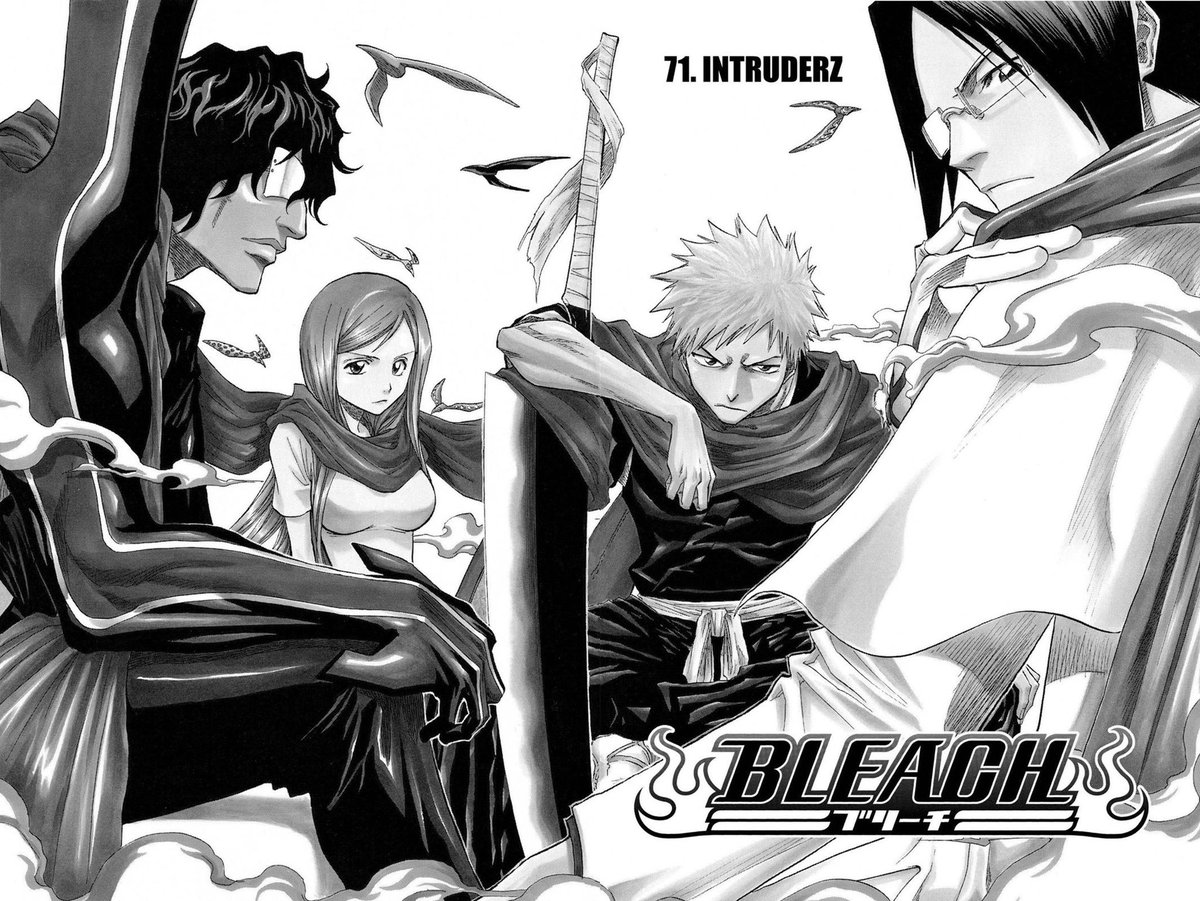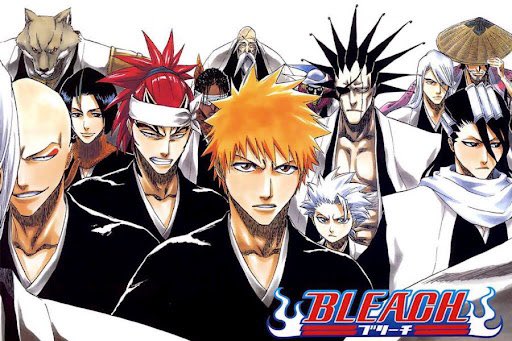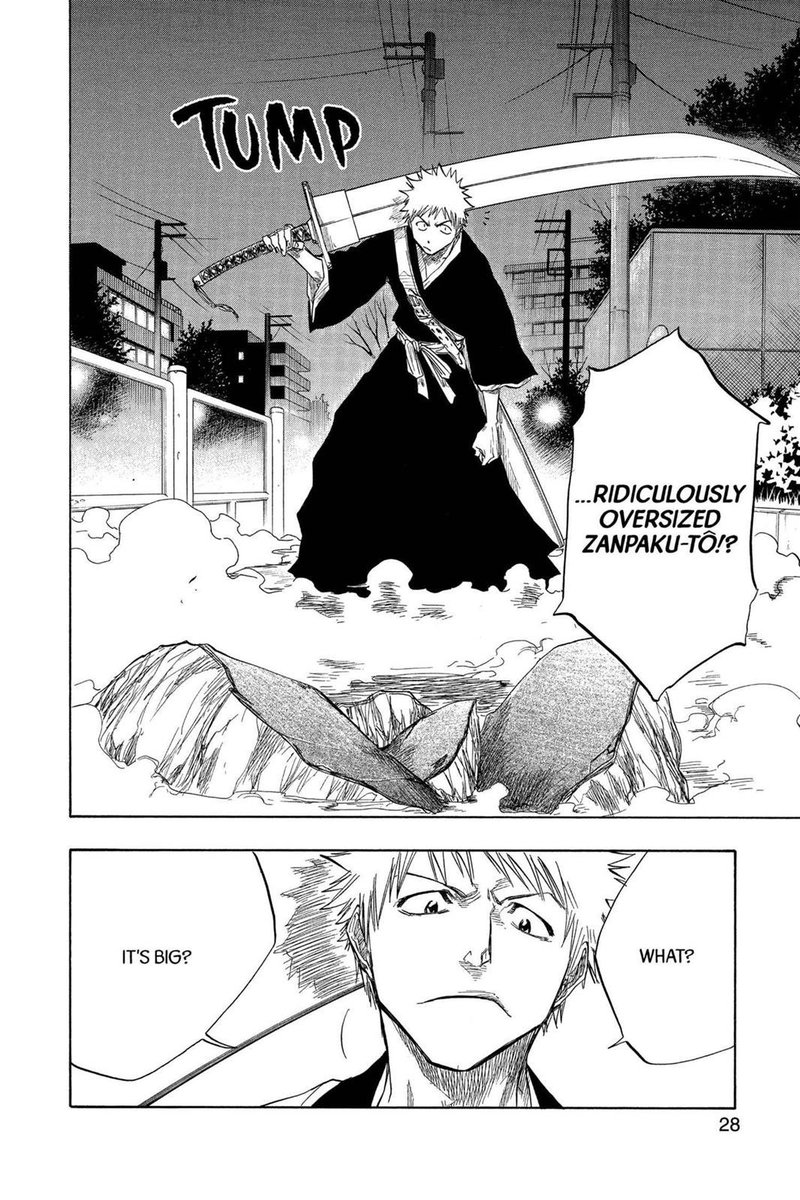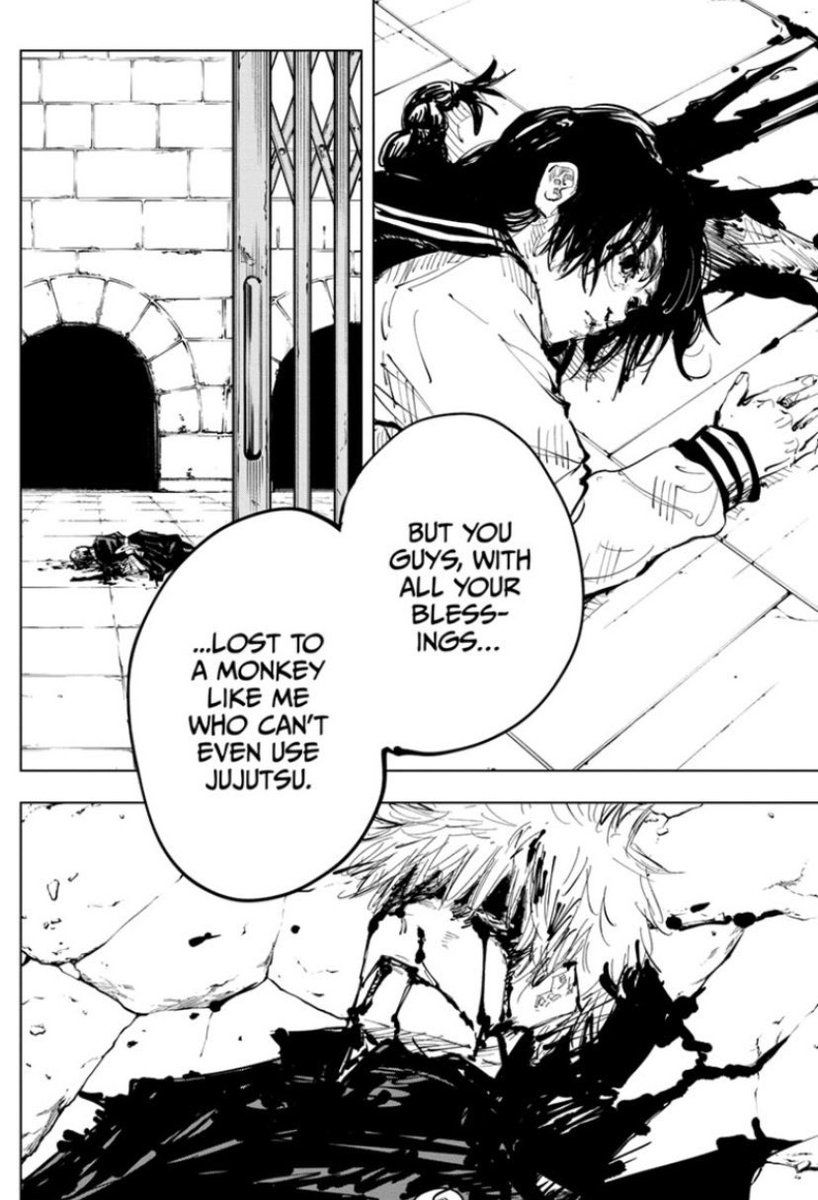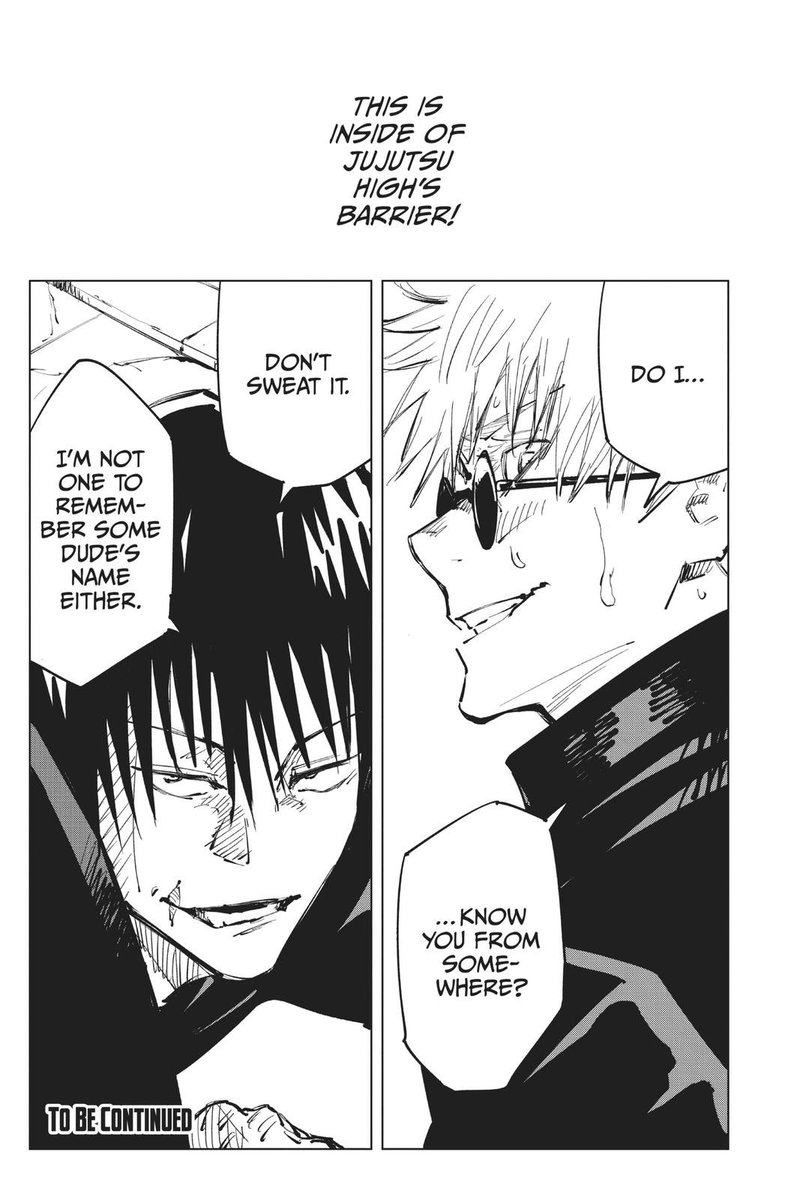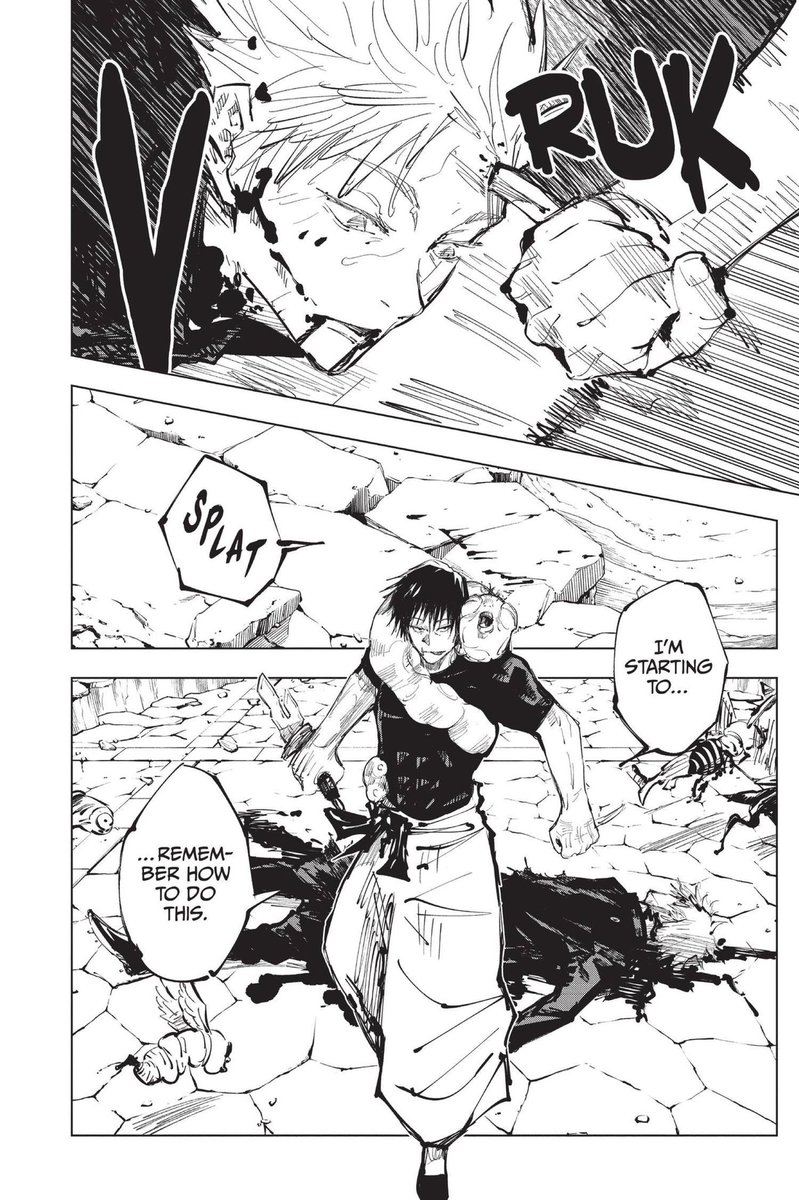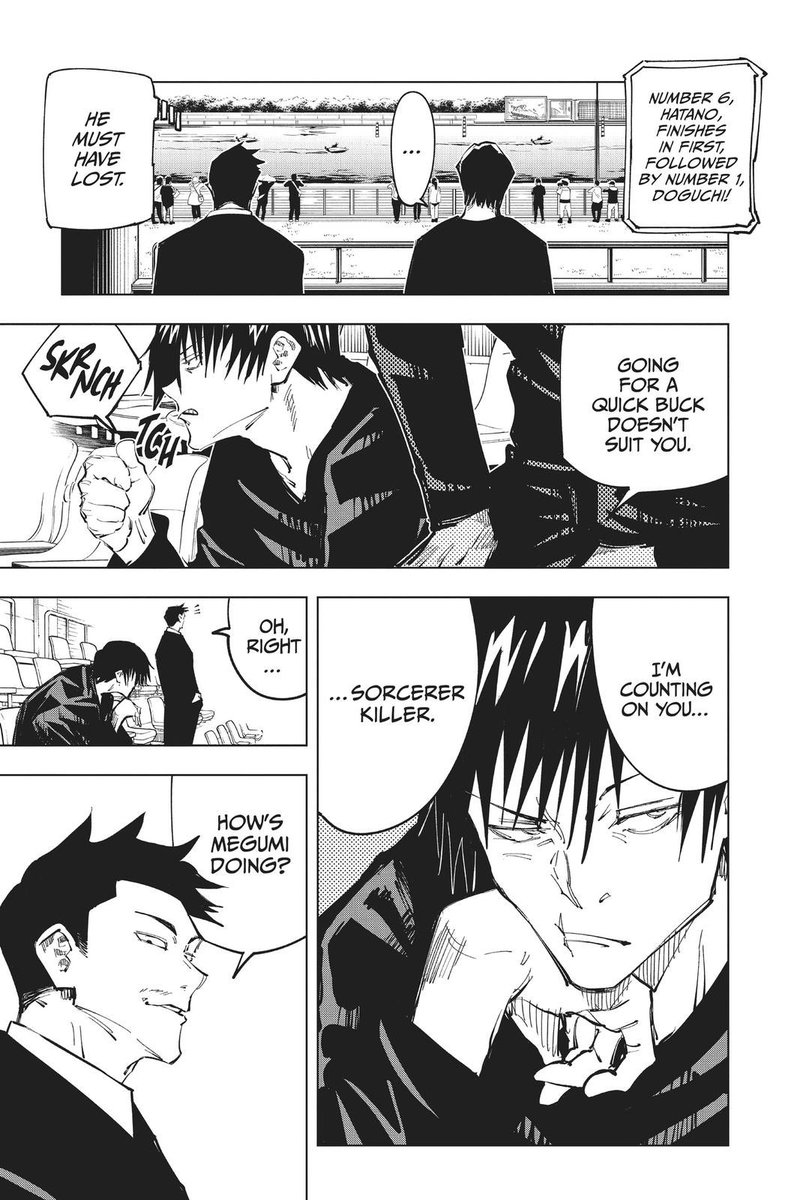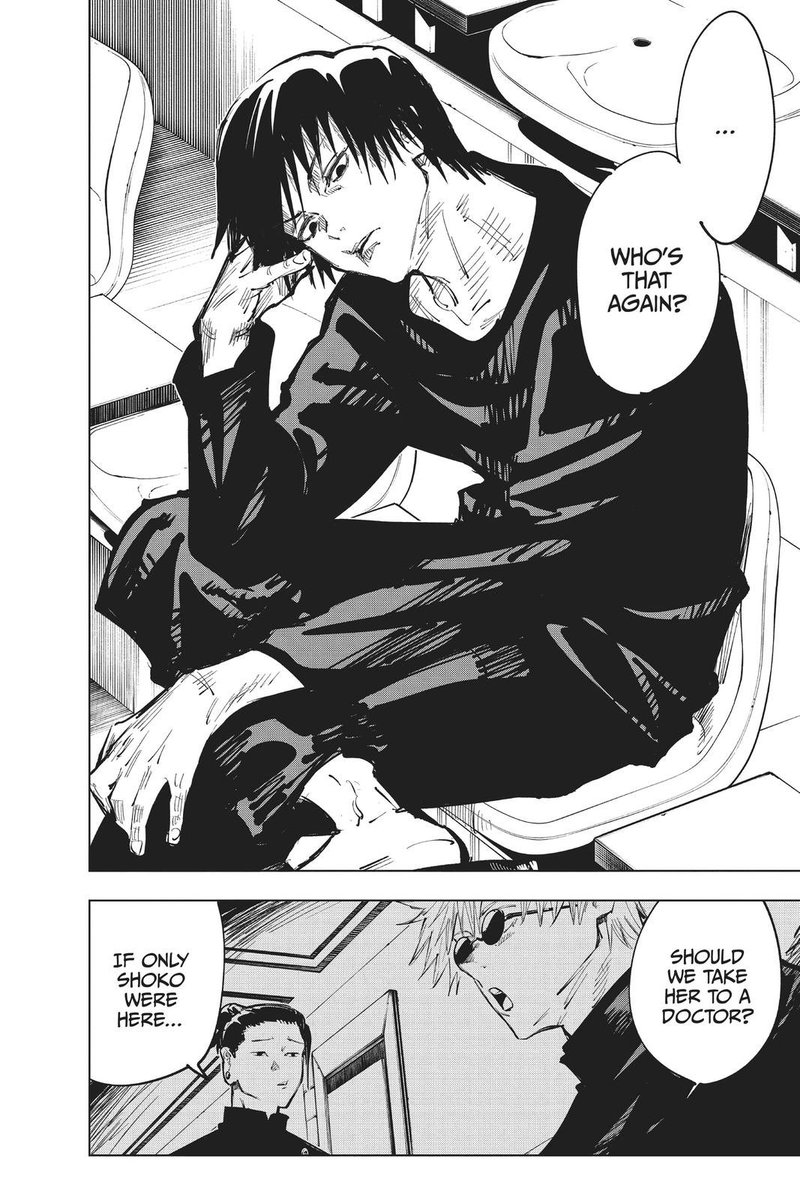
Written about certain aspects of this already, but this will be a more comprehensive thread all in one place, looking at the pages in their entirety and how they tie to the themes. +
The additional pages start with the confirmation that mikasa’s choice allowed ymir to ‘see’ that serving the king was born from her twisted concept of love/connection, and that she wished she had realised her love was for her family (children) earlier. + 

Her eyes being open symbolises this clarity in outlook and change in perspective, much like eren originally opened her eyes to the fact that she was nothing other than a normal person. + 



Her search for connection had culminated in mikasa, which had been hinted at multiple times. Her tragic life had led to the birth of the one who could eventually free her, a girl who managed to overcome the trauma that shackled ymir for 2000 years. + 



https://twitter.com/cactuzzshash/status/1419330070880169989?s=21




This connects perfectly as AoT characters are in many ways a representation of their trauma/world. This is primarily showcased through the MC, the vehicle for the narrative. Eren’s hate for titans is what his entire character originally revolves around. + 



The same thing is shown again from the opposite perspective through his mirror gabi and her hatred. Grisha x Kruger’s hatred also stems from their childhood trauma and it’s what fuels their patriotism and actions throughout life. + 


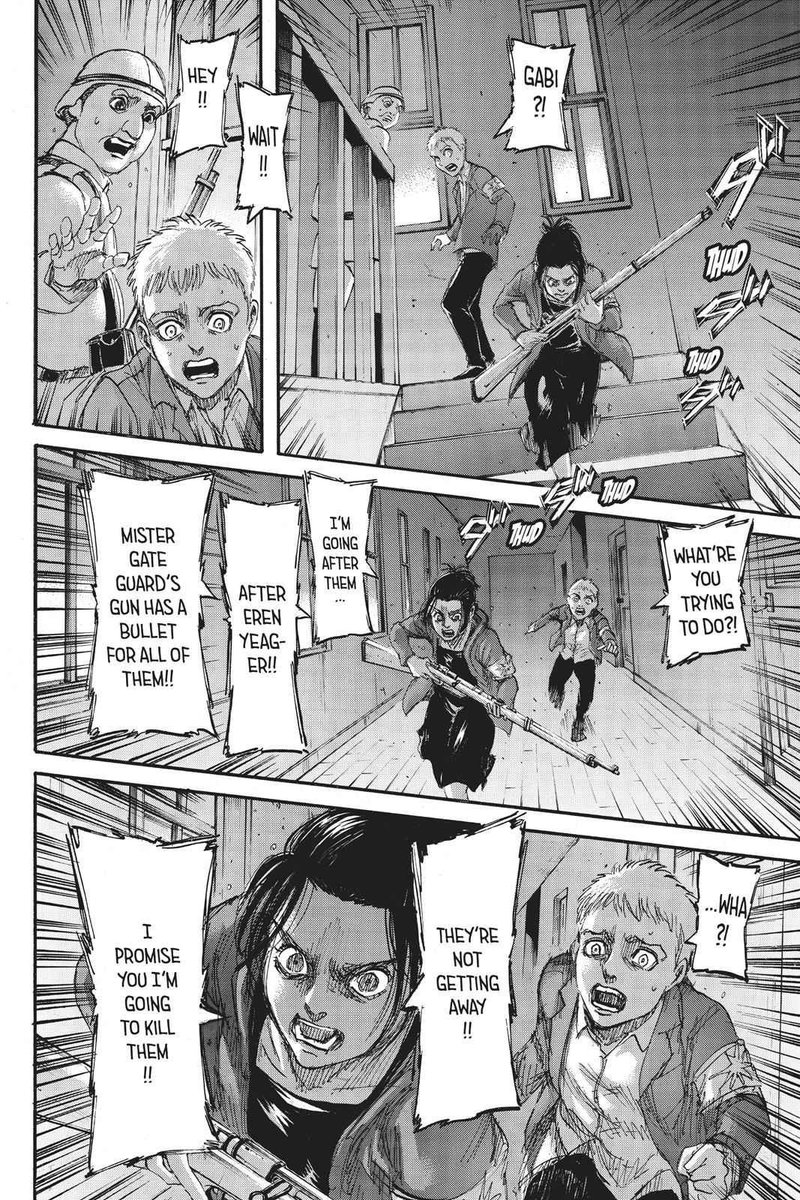

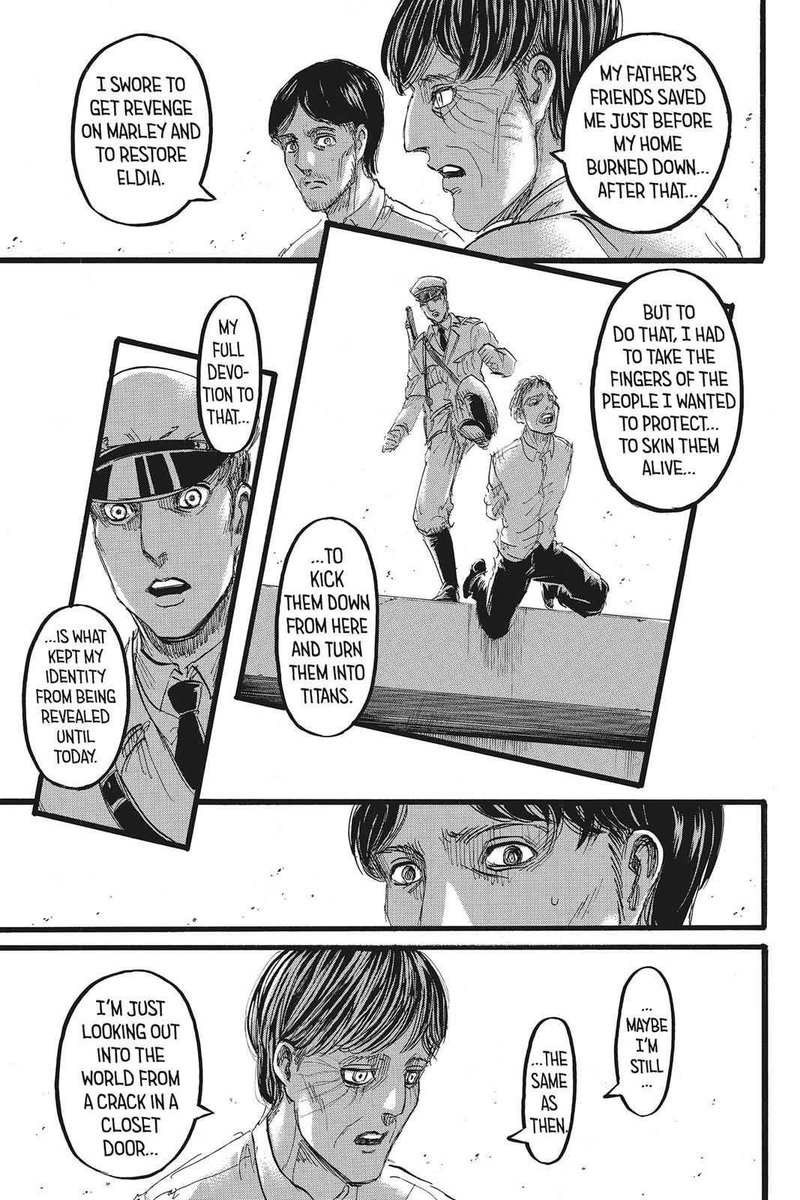
Reiner (‘the other mc’) desired to be a hero and an honorary marleyan, a byproduct of his need for affirmation stemming from his childhood. Him ‘saving’ humanity is tied symbolically to uprooting a tree, tying into CotF which i’ll explain next. + 


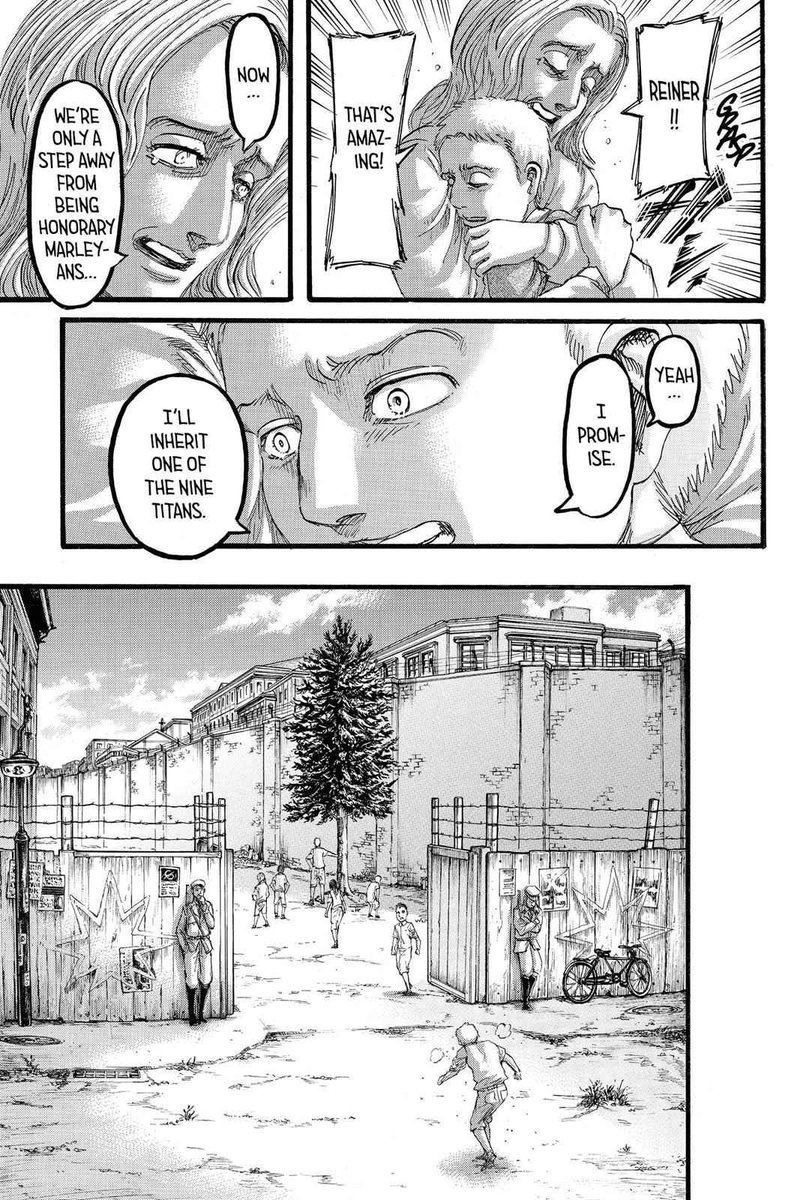
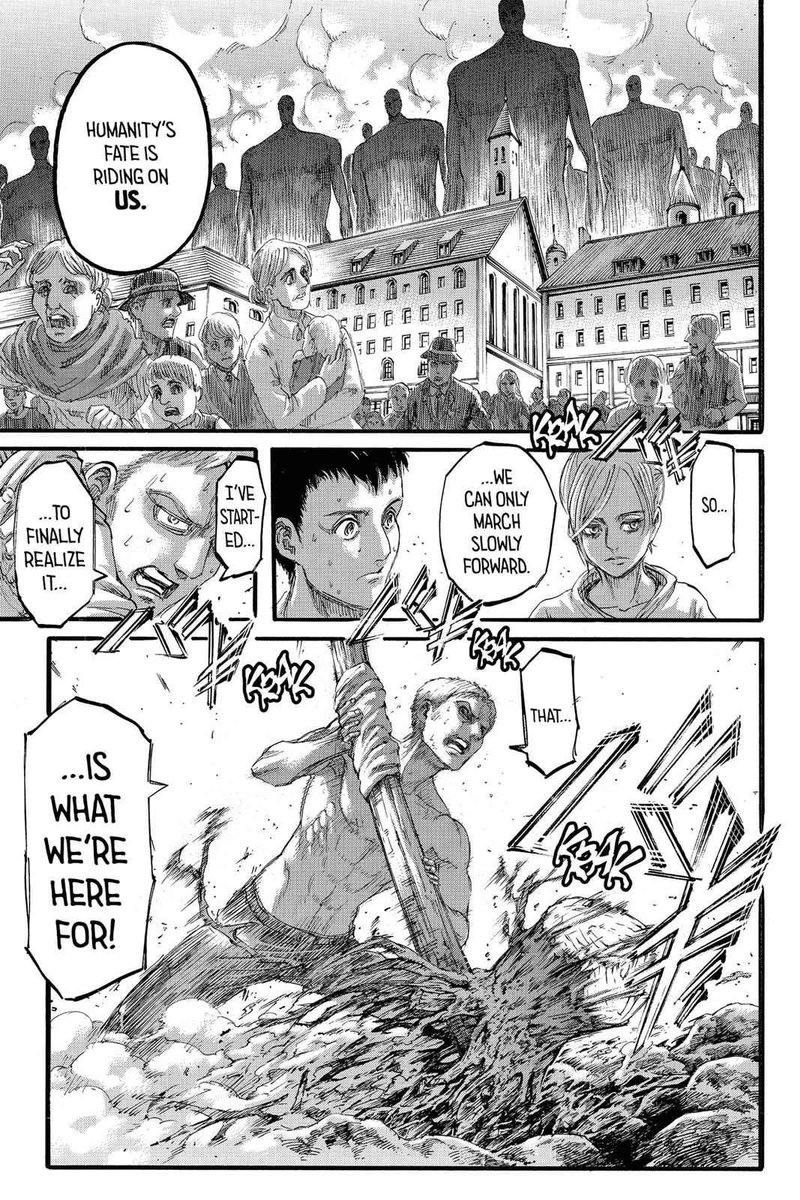
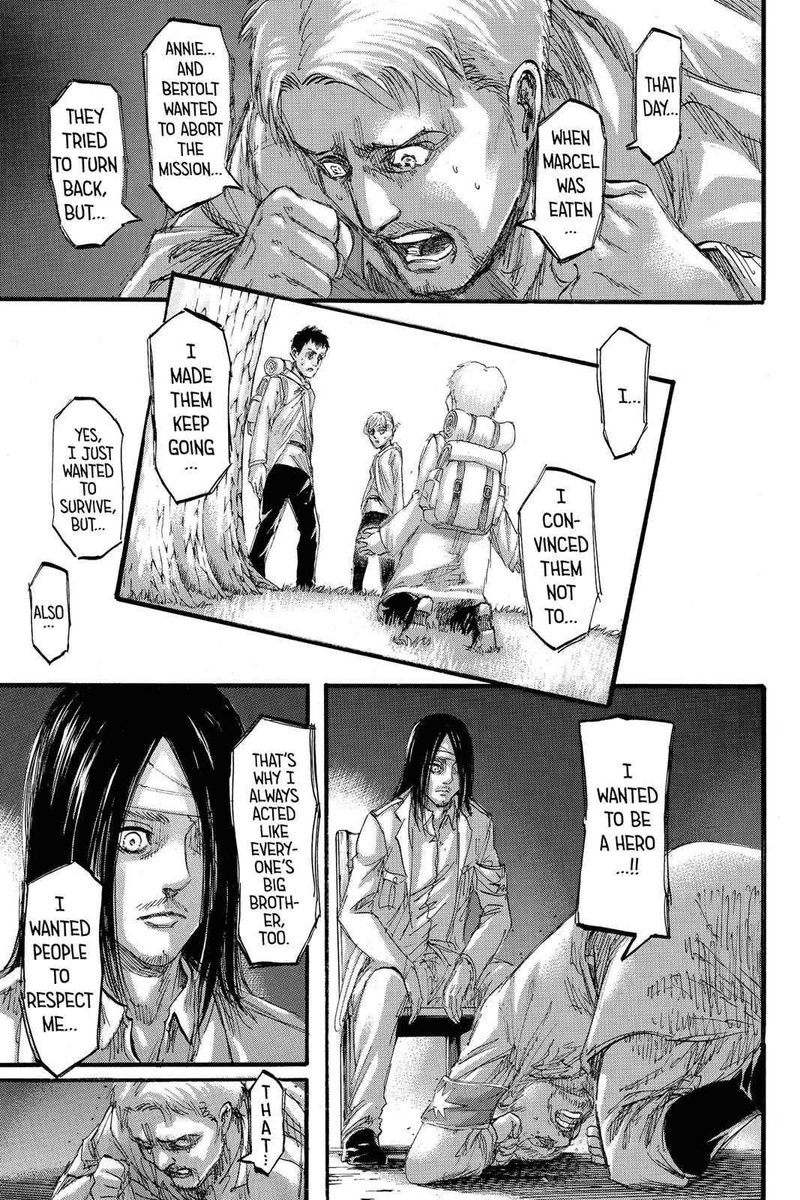
‘Children of the Forest’ is one of the central themes. Mr Braus is a mouthpiece for Isayama, and presents the idea that we must do our best to not affect the next generation in our cycles of hatred, or it will never end. To not create more Erens, Ymirs, Reiners etc + 

The most prominent example of this is AoT’s ultimate antagonist, Zeke Yeager. A child who grew up to believe life itself was worthless: his anti-natalism and worldview a product of his own trauma. His ties to the ‘forest’ are explicit. + 

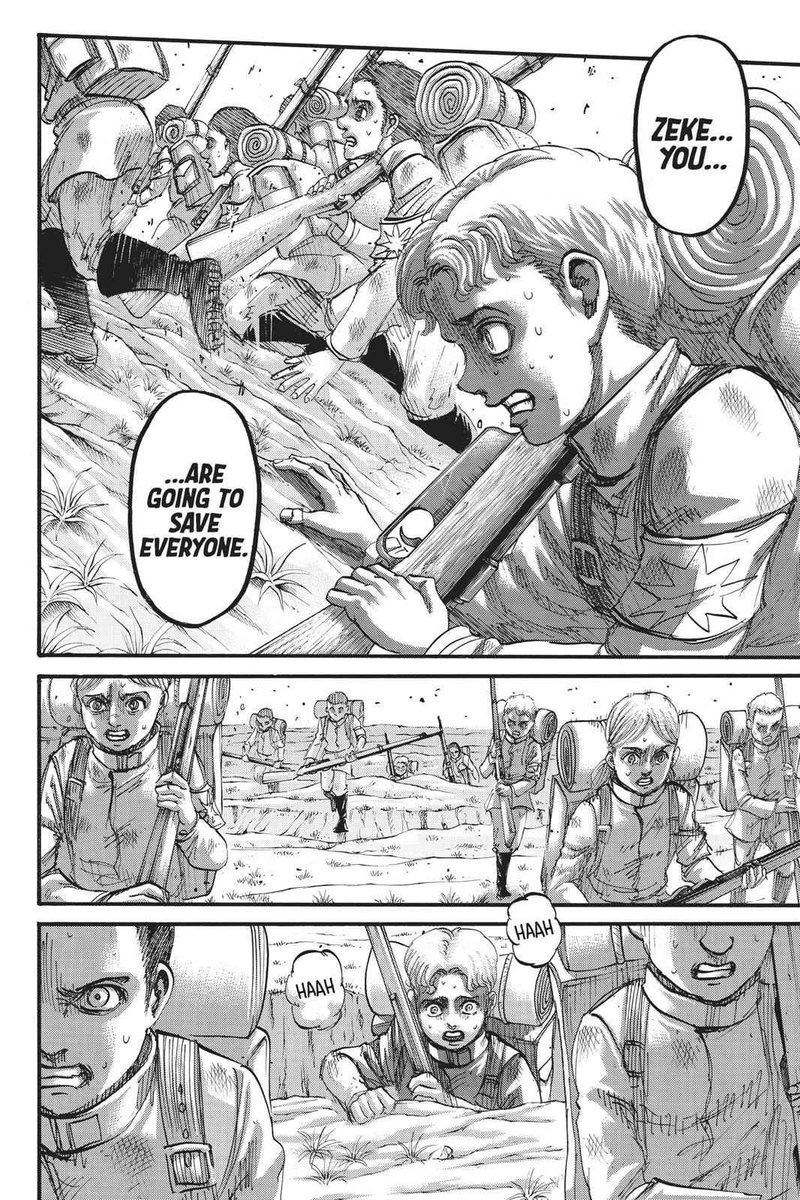

Levi brings him to a forest which he claims is a suitable home, Zeke ironically wants to bring other children into the same forest, he attempts to escape to solve the cycle of hatred but is unable to do so, and finally his beast titan is literally a monkey. + 



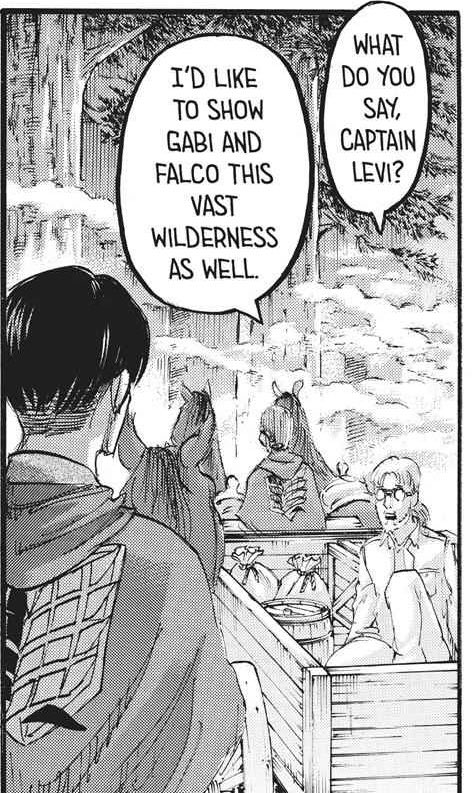

His conclusion of seeing a beautiful day is him symbolically leaving the forest as he can now see the clear sky for what it has always been. The world didn’t change, instead his warped perspective on it did. + 
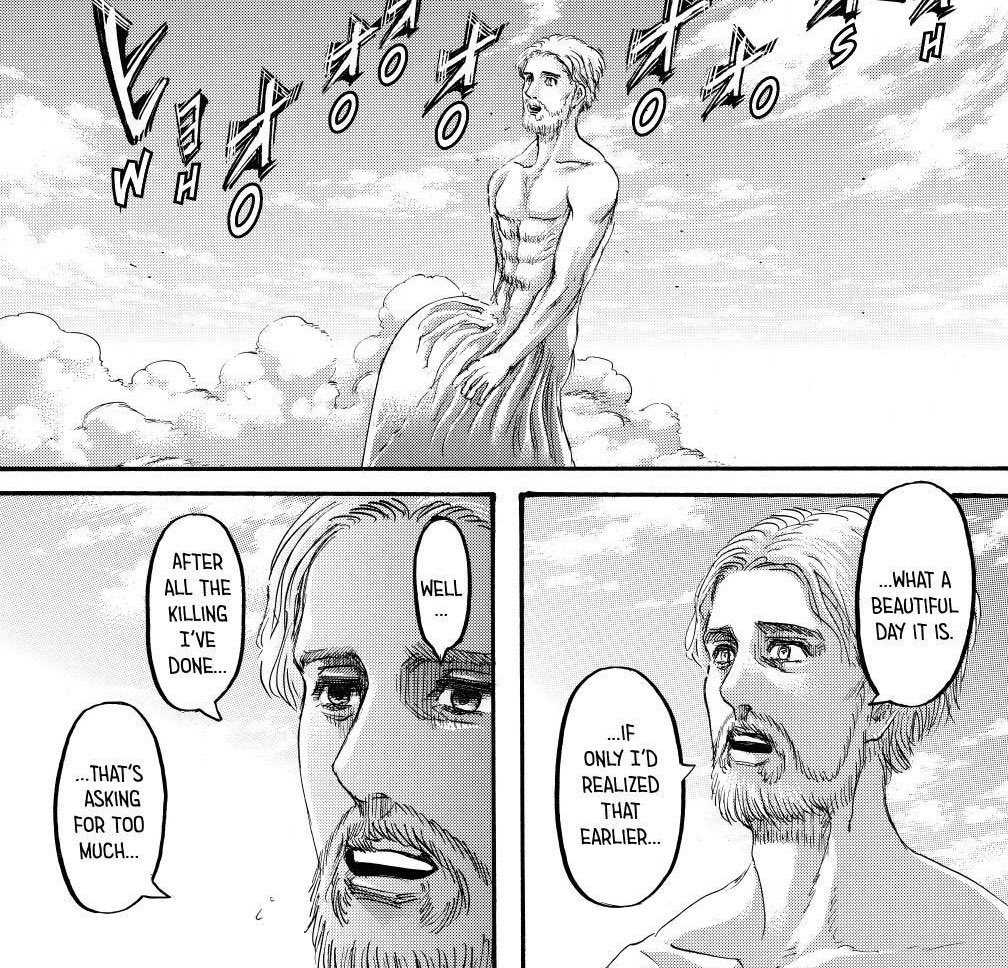
This is why Mikasa, who grew past her trauma, saving ymir, who couldn’t, and ending the titan cycle is such an incredible and powerful message to conclude this theme. Just save one child, and the world will become a better place for it. +
https://twitter.com/cactuzzshash/status/1419330100571648007
Ymir choosing Mikasa is further strengthened in the next page. Y was shacked to the memory of the king’s wishes for 2000 years, however M remembers eren out of her own volition in direct opposition to his wishes. + 





The exact details of her life aren’t explained because it’s just not important, the story isn’t about that & turning it into a shipping war is borderline embarrassing. It’s a representation of one of the ‘long lives’ eren wished his friends might have. + 

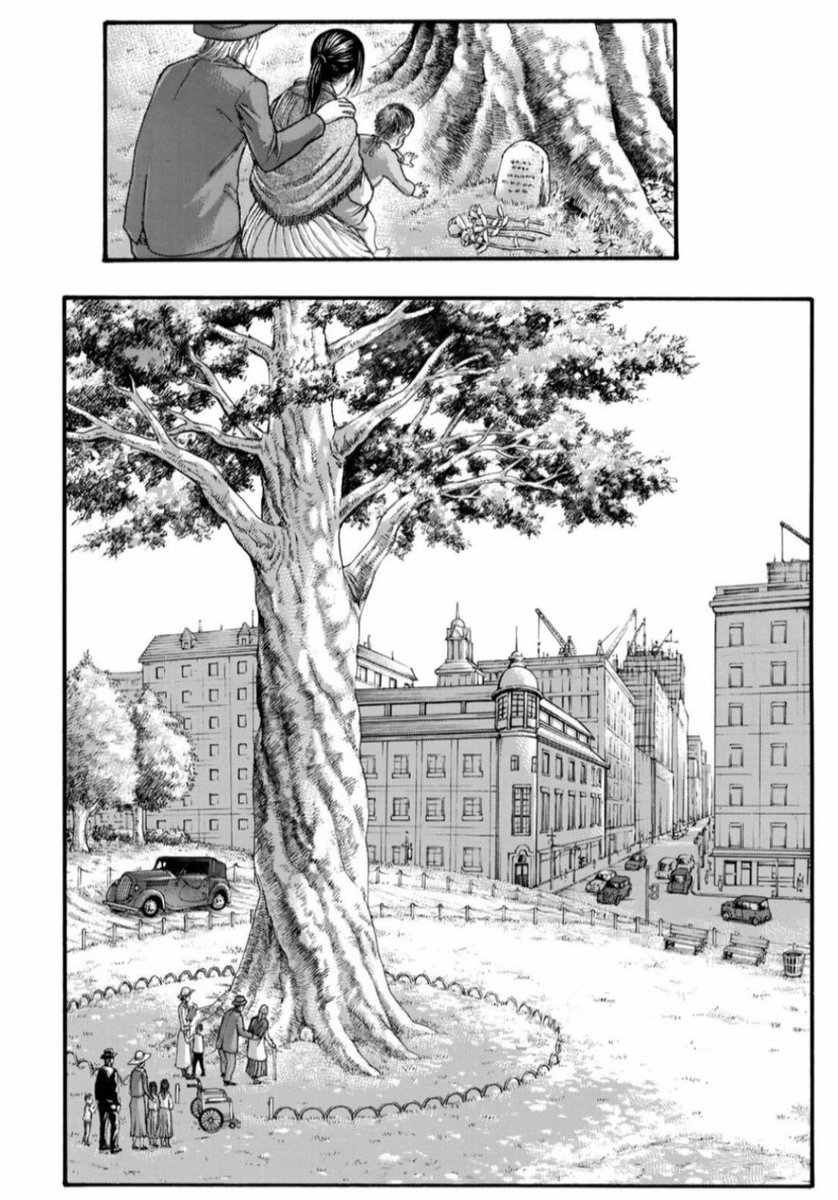
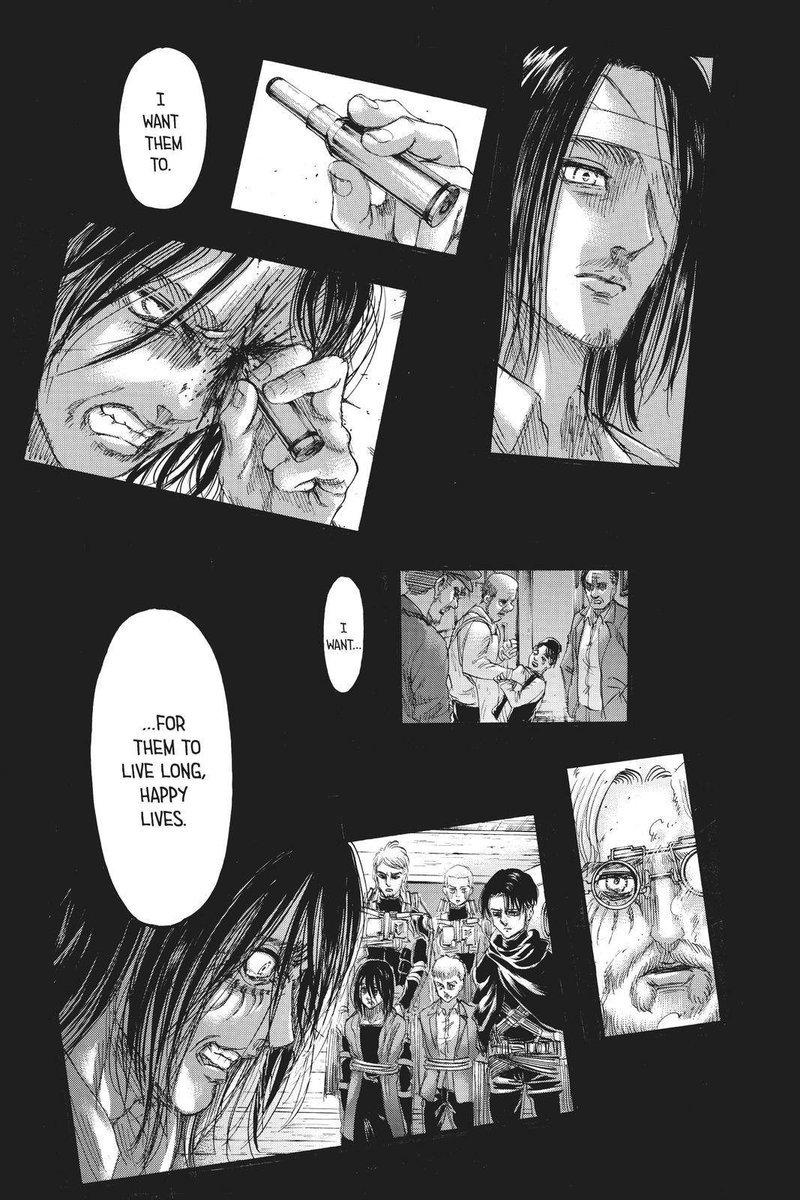
The final pages are steeped in the realism and ambiguity that first made me fall in love with the story, but an undeniable spark of optimism beyond that. Decades after M’s death, a modern Paradis is embroiled in war. + 

The reasons are unexplained because they are again unimportant, this is just a commentary on human nature. Erwin’s words ring true as the cycle of conflict continues onto further generations. OfC Eren’s actions didn’t solve world peace forever & that wasn’t even his goal. + 



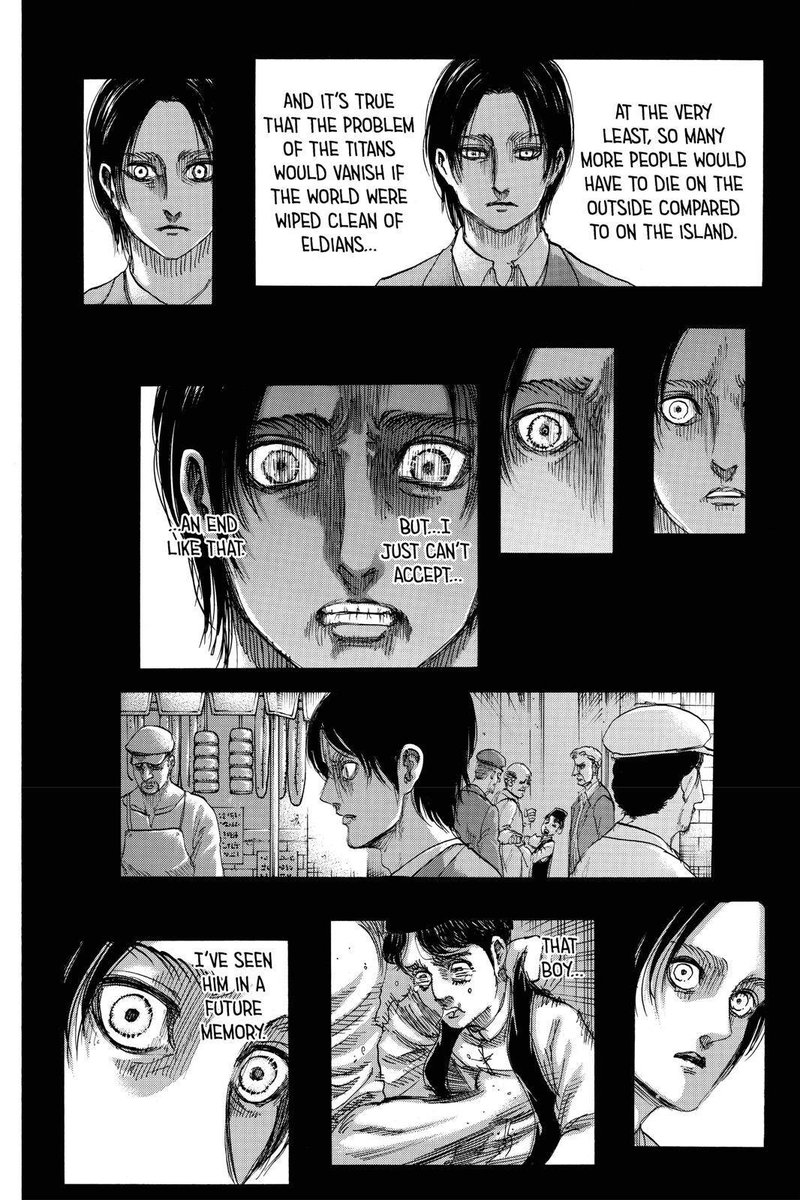
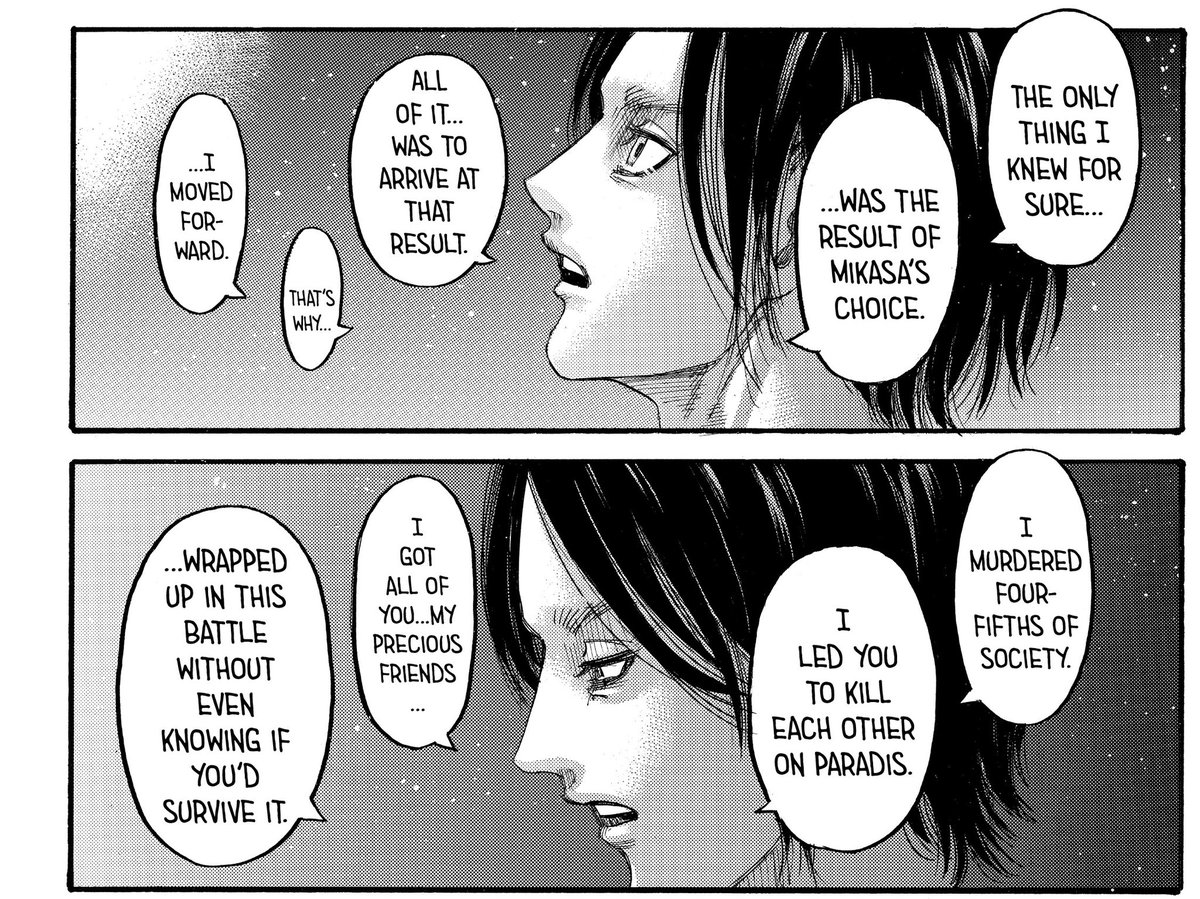
Saying eren may aswell have done nothing is also just as ridiculous. Were Alexander the Great’s achievements meaningless because his empire collapsed upon his death? Is all of humanity meaningless because the sun will one day explode? It’s redundant +
It’s a complaint steeped in emotional attachment to an unrealistic outcome, it’s just not who humans are and it’s not how life works. The cycle can’t be solved in general, but definitely not by a child formed in the image of that very cycle. + 



We see hundreds of years pass as eren becomes ‘fuel’ for another forest, very valid to assume isayama intended it to be 2000 years given the symbolism and his love for those details. The source of all living matter remains. + 

A child heads into the forest (reference overt) of their own accord, pushing their own back into ‘hell’, in order to solve a problem that the generations before couldn’t solve. Conflict is inherent to human nature, but the desire to solve that will never go away. + 





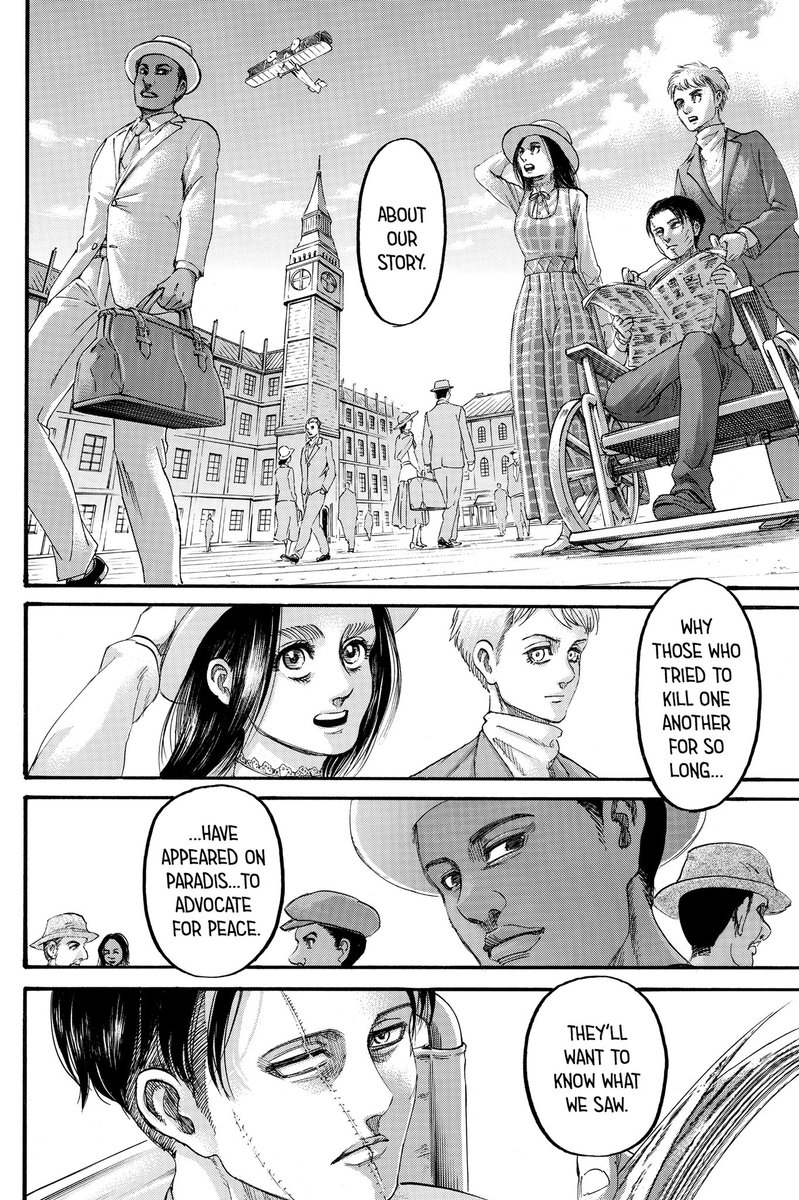
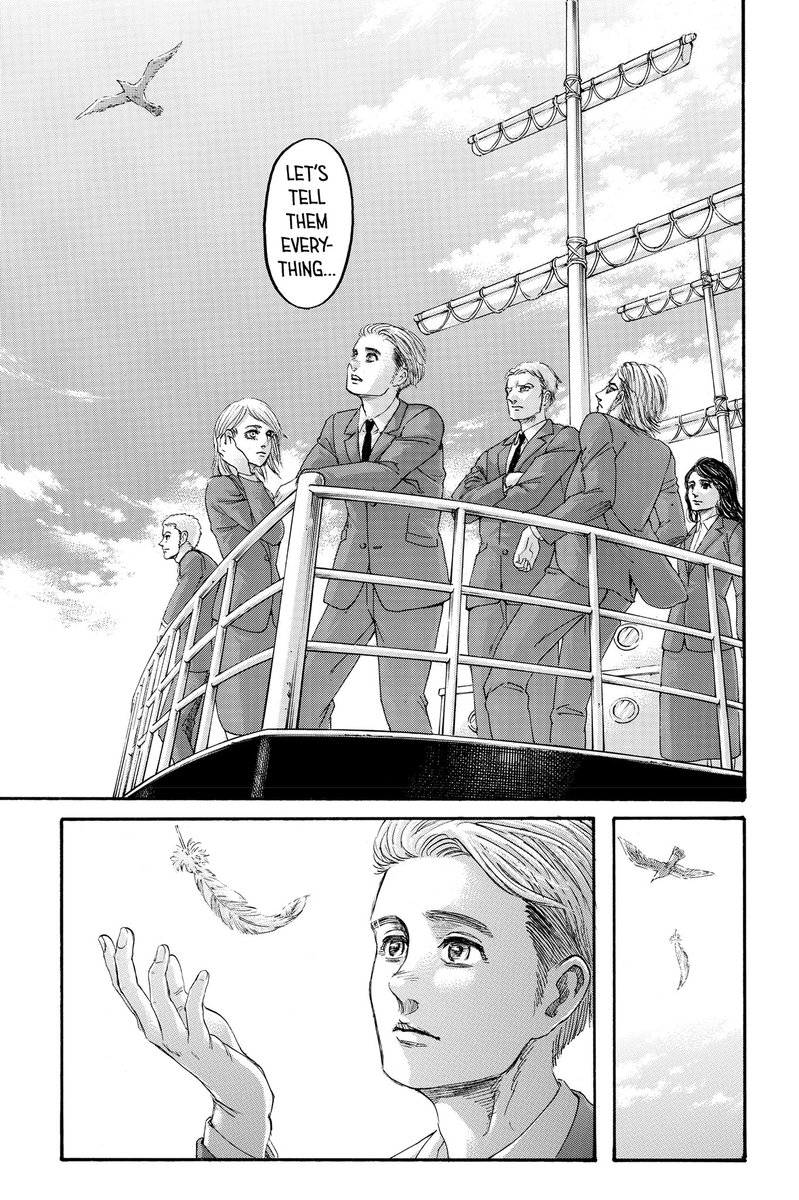
The source is a metaphor for ‘power’ in whichever shape that comes. For ymir it was the representation of her need for strength (undying body) and connection (link to all eldians) but for the child it will be a representation of their desires. + 
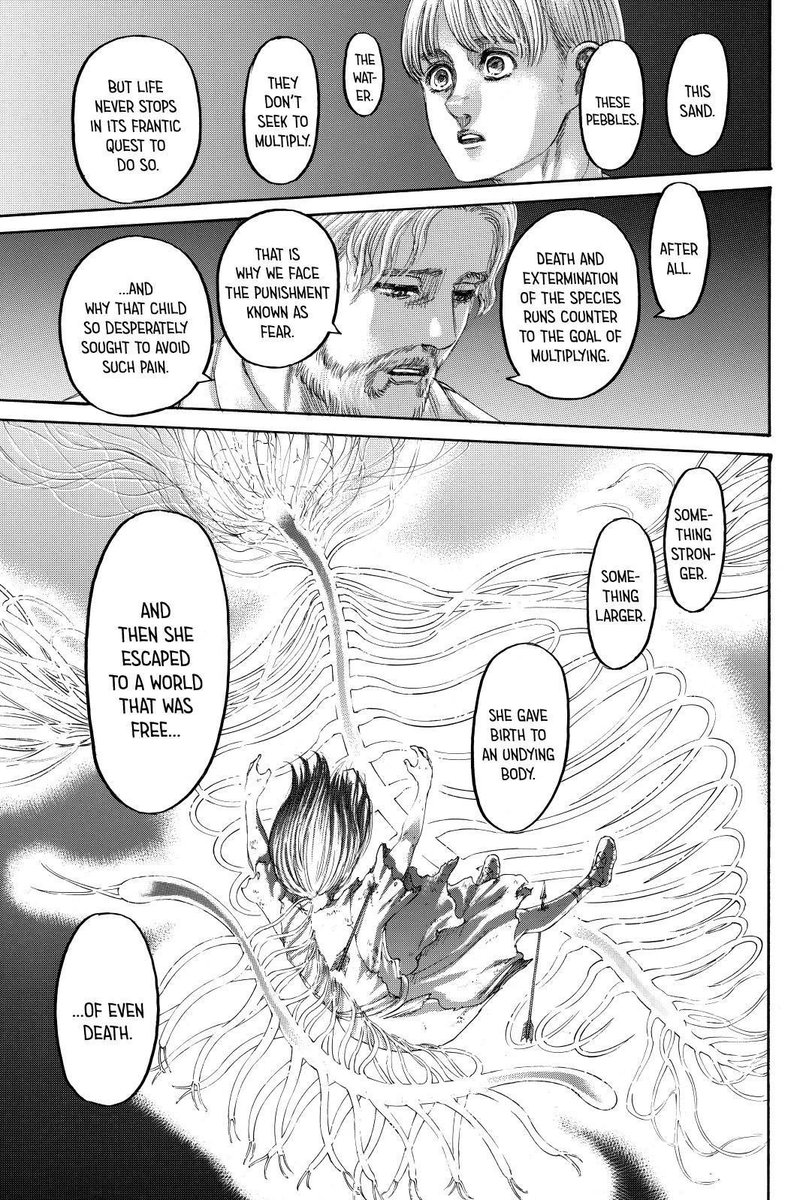
The cycle of humanity goes on. Ymir was too submissive due to her trauma, while eren was the opposite due to his and neither capitulation nor genocide was a solution. This child of the forest will attempt their own way and it’s beautiful.
The end 🤍
The end 🤍

• • •
Missing some Tweet in this thread? You can try to
force a refresh




